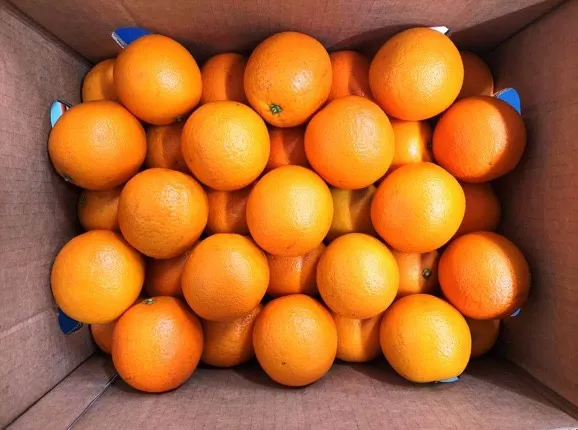Every country has its advantages for cultivating fresh produce and it is no different for citrus, says Pyramids Agricultural Investment Co.’s business development manager Abdulla Tharwat: “The citrus crop is one of the most important crops in Egypt in terms of the amount of production and the quantities planted, and Egypt is distinguished by it on the world level in terms of quality and taste. The world is an open market and all companies are looking for the best investment and give advantages and facilities to encourage these investments. Some countries are characterized by low production costs, others by availability of packing materials or their government granting land facilities to encourage agriculture, granting interest-free loans to encourage investment, export support, agricultural crop marketing associations and participation in international exhibitions. Each country has its own advantage.”
Tharwat emphasizes that an orange doesn’t hold the same value as an avocado, which means the return on investment is lower for citrus than it is for other tropical fruits. “All these advantages help companies choose the best type of investment for them and the possibility of expanding in the same crop or choosing another crop. We do not deny that the citrus crop enjoys huge quantities at a global level and it isn’t a basic crop. It’s natural that the return on investment in it is weak, according to the law of supply and demand. We cannot compare it with a crop, for example, avocados, bananas, or pineapples, or compare the price advantages of one country over the other, because all the previous data are well studied before investing.”

La Unio has requested European Commission to initiate an investigation “for possible commercial dumping of citrus fruits from Egypt on the Community market. Tharwat states that just because the Egyptians can cultivate and sell their produce slightly cheaper, it does not mean they are commercially dumping citrus in Europe.
“In regards to the Spanish asking for an investigation on Egyptian citrus, they can ask for whatever investigation they wish. In the end it’s an open market and we’re not ‘dumping’ our oranges at absurd prices. There’s supply and demand and I feel the numbers that have been presented by the Spanish are not in good faith. For one the prices at our local supermarkets are not as low as they make it seem, but even if they were, these prices have nothing to do with the export market. The citrus destined for the Egyptian local market are different in size and quality and thus carry a different price tag. The ones that are exported to Europe are sold for 1 euro per kilo in the European supermarkets.”
That said, Egypt does grow a lot of citrus and Tharwat does see that some advocate for growing different crops: “Some countries now recommend replacing oranges with basic crops or cultivating avocados and berries, because oranges now require large areas to reach the lowest cost and highest return on investment. In the end, Egypt is characterized by large quantities of citrus fruits and the highest percentage of exports, and Egypt exports to all countries of the world and takes into account the international standards for the markets. In the end, it is not a basic crop, so it must be provided to citizens at a reasonable price in light of the difficult economic conditions.”
For more information:
Abdullah Tharwat
Pyramids Agricultural Investment Co.
Cell no: +201005027256
Tel: +20452633420
Email: [email protected]
http://pyramids-agriculture.com/










